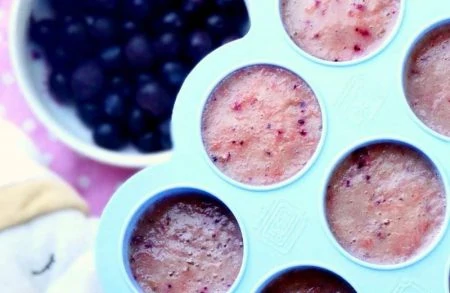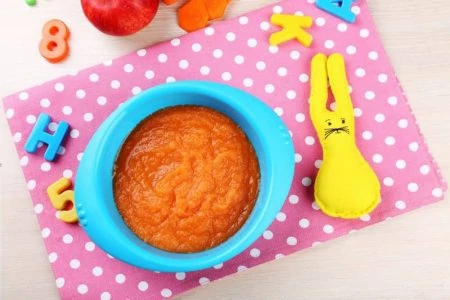After seeing several cute videos of babies tasting citrus fruits, I wondered: Can I give my baby lemon? Lemons are good for you in many ways, but they do contain a lot of citric acid.
Whenever we introduce a new food to our baby, it’s essential to proceed with caution. Allergic reactions, choking hazards, and tummy aches can quickly occur. Lemons, in particular, require a cautious approach. So let’s see if they’re safe for babies.
Key Takeaways
- Introduce lemons to babies around 8-10 months, but use them as seasoning for other foods they’re already eating.
- Lemons are high in vitamin C, but their sour taste and high acidity can cause discomfort and diaper rash.
- Be cautious of allergic reactions, especially if pollen allergies run in the family.
- Consider alternatives like sweet potatoes, strawberries, or bananas for vitamin C intake.
When Can Babies Eat Lemons?
For any new food introduction, I always recommend that parents just offer one new food at a time. Ideally, you should allow seven days for grains and three to five days for fruits and vegetables. By doing so, if an allergic reaction occurs, the parent will know which is the troublesome food.
Per the recommendations of the American Academy of Pediatrics, I encourage waiting until 4 to 6 months old before introducing the first foods. At this age, the infant’s motor skills should be developed enough to tolerate spoon-feeding. This also gives the digestive system time to mature (1).
Editor's Note:
Dr. Leah Alexander, MD, FAAPIf your baby is around 8 to 10 months and isn’t showing sensitivities toward new foods, you can offer some lemon. You can begin by giving them a small piece or extracting some juice and diluting it.
However, the chances are your little one won’t be crazy about it. Babies usually don’t enjoy such a sour taste and tend to gravitate toward sweet, mild flavors.
When you give your baby the lemon, serve it either on its own or with a favorite snack they’re used to eating. Never offer it with another new food — if your baby should react, you’ll know the culprit.
If your little one enjoys the taste, you can continue offering them a small piece once a week. Lemon contains several beneficial properties. It also has a high level of acidity, though, so avoid giving it too often.
In clinical practice, I typically recommend introducing citrus foods (lemons, limes, oranges, tomatoes) around 9 months. At this point, most infants have been consuming cereals, other fruits, most vegetables, and perhaps meat or legumes.
Because lemons and limes have intense flavors that many infants do not like when eaten alone, I usually ask my parents to add the juice as seasoning to other foods they have already been consuming. With any citrus food, I caution parents that skin contact may cause a mild rash on the cheeks or around the mouth. In other cases, a mild diaper rash may develop.
Editor's Note:
Dr. Leah Alexander, MD, FAAPHealth Benefits of Lemon
For starters, lemons are low in calories, with approximately 15 calories for every medium-sized fruit. They also don’t contain any sodium, fat, or cholesterol.
One average-sized lemon can provide you with 10% of the daily recommended intake of dietary fiber. They’re full of vitamin C, capable of delivering 40% of the daily required amount. Lemons also contain small amounts of magnesium, calcium, and vitamin B6.
The vitamin C in lemons can help the immune system fight colds. If your little one has a cold, you should still limit the amount of lemon you serve them.
Moreover, lemons contain something called limonoids, known for having cancer-fighting elements. In one study, it was found to reduce tumors, specifically in breast cancer (2).
Concerns About Lemon
Lemons are good for you, but that doesn’t mean they don’t have some potential downsides.
1. Allergies
If allergies run in the family, you should be extra careful about offering your baby lemon. Allergic reactions are caused when the immune system mistakes a harmless substance as a threat to your body. Substances that cause this are called allergens.
If your little one displays sensitivity toward pollen or has a pollen allergy, they could react to citrus. The body can misidentify the proteins found in citrus as an allergen. In turn, this causes cross-reactivity and will create a response similar to the actual allergen. The International Journal of Molecular Sciences discusses this phenomenon further (3).
It’s been shown that people suffering from grass pollen allergies are often at risk of citrus hypersensitivities.
During a prick test, approximately 39% of the people involved in trials developed reactions to citrus that resembled those of pollen (4).
Depending on your baby’s sensitivity, the symptoms can vary. Some may show reactions seconds after touching the fruit, while for others, it could take hours. So knowing the signs is essential before offering lemon to your baby.
Watch Out
Symptoms are generally confined to the places on the body that come into contact with the citrus. This could be the gums, tongue, lips, throat, and diaper area (6). The symptoms include the following:
- Itching.
- Irritability, fussing.
- Redness.
- Swelling.
- Rash around the mouth and in the diaper area. This is usually an area of flat redness without bumps.
Other symptoms also caused by an allergic reaction to ingesting lemon can include some of the following:
- Coughing.
- Sneezing.
- Runny nose.
- Vomiting.
- Diarrhea.
I always recommend that parents keep Children’s Benadryl at home once new foods are being introduced to their infant. At each visit, I discuss the weight-appropriate dose that should be given in case of an allergic reaction.
Food reactions are not subtle. They are usually associated with very obvious hives (a welt-like rash) that changes positions on the body, mouth and/or eye swelling, vomiting, and possible difficulty breathing.
Anything more than just hives warrants contacting a medical professional and, possibly, an emergency room visit. After such an episode, there should be a discussion about keeping emergency rescue injectable treatment in the home, day care, etc.
Editor's Note:
Dr. Leah Alexander, MD, FAAP2. High Acidity
Lemons are highly acidic. Too much acidity can aggravate gastroesophageal reflux, which may result in fussiness and poor feeding (7).
Even if your baby isn’t suffering from gastroesophageal reflux, it’s still best to limit the amount of lemon you give. Too much acid doesn’t sit well in the stomach — your baby could get an upset tummy. Acidity can also cause trouble in the diaper area, resulting in a diaper rash.
3. Harmful for Teeth
If your little one has begun to develop teeth, you should try to limit the amount of lemon they eat. Even when diluted with water, the high acidity is quite erosive and may damage their enamel (8). Enamel is what protects teeth from extreme temperatures, biting, and grinding.
Babies and children who drink less lemon water experience fewer cavities, plaque, and tartar build-up. Because of this, your little one shouldn’t eat lemon slices daily. If you’re offering lemon water or juice, serve it with a straw — this will limit the amount of acidity directly touching their teeth.
While acid erosion is certainly something of which to be mindful, I clinically see more teeth problems from juice consumption, “gummy” foods or candies, and falling asleep with a milk bottle. In all cases, I discuss the importance of teeth brushing before bed and not offering sugar-containing beverages afterward.
Editor's Note:
Dr. Leah Alexander, MD, FAAPOther Sources of Vitamin C
A common reason parents want to give their baby lemon is due to its high levels of vitamin C.
There are many alternatives, more baby-friendly foods containing vitamin C that will benefit your baby when included in their diet. You might already be feeding your little one some of the following (9):
- Sweet potatoes.
- Bananas.
- Peas.
- Kale.
- Strawberries.
- Watermelon.
- Raw tomatoes.
- Kiwi.
- Broccoli.
- Spinach.
- Grapefruit.
How Much?
FAQs
Keep in Mind
While you can give your baby lemon around eight to ten months, it’s not the best idea. Lemons are sour, and your baby will probably not enjoy them. It is best to use them as seasoning for other foods. They also present a risk of allergic reactions, especially if pollen allergies run in the family.
The high acidity in lemons can cause diaper rash and an upset tummy. Giving your baby too much can also damage the enamel on their teeth. If you’re looking for a source of vitamin C, it’s better to offer sweet potatoes, strawberries, or bananas.












